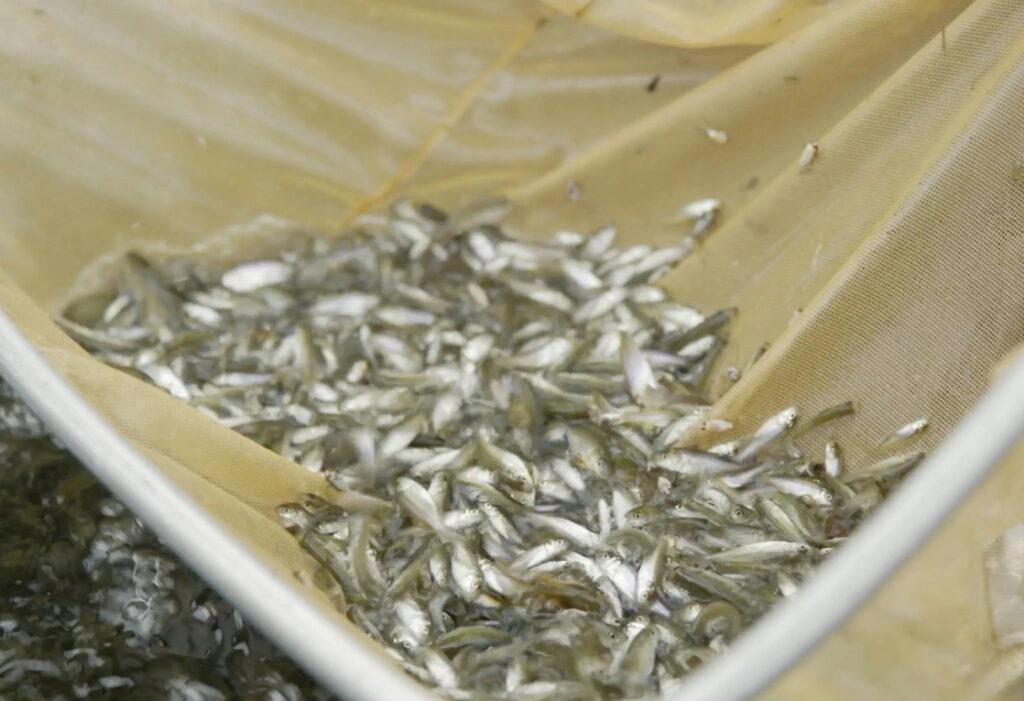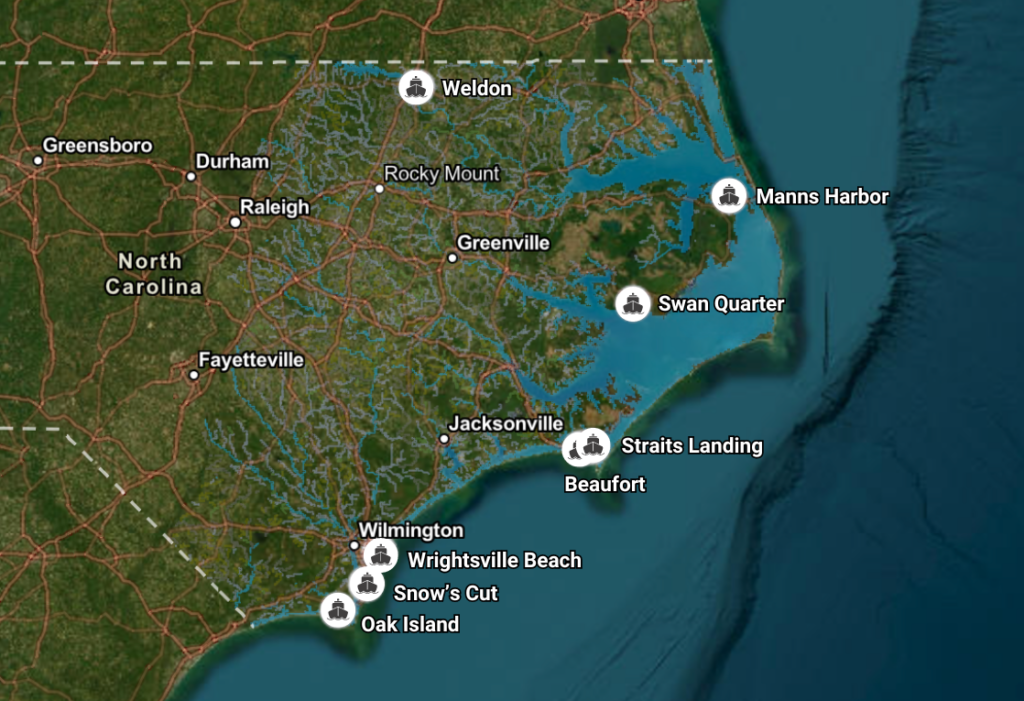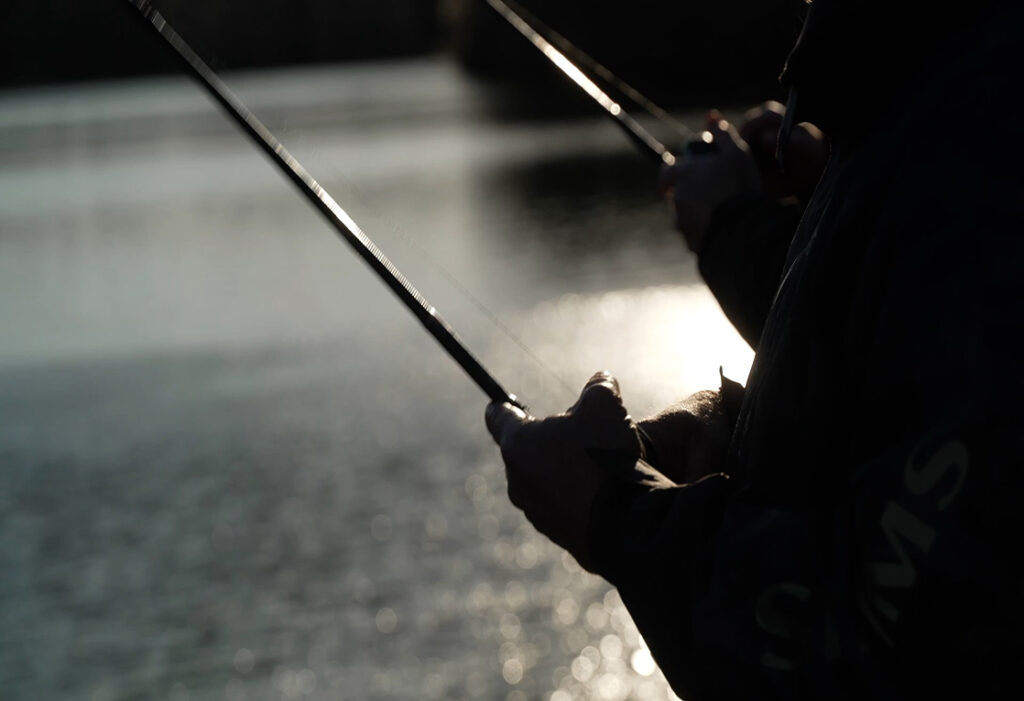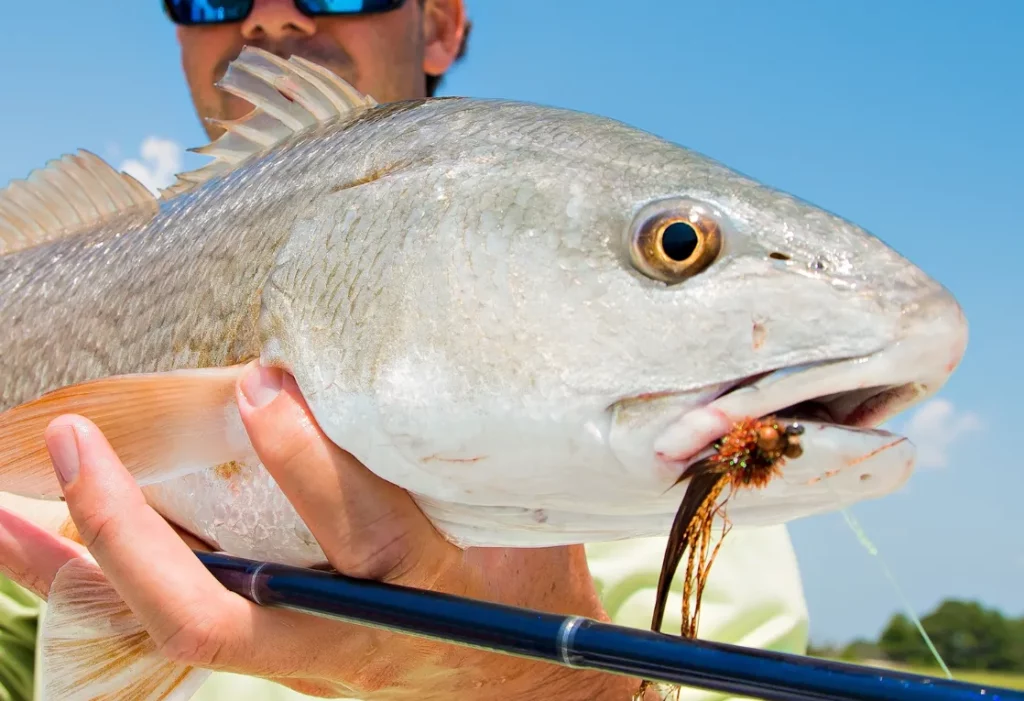
A premier part of the NC Marine & Estuary Foundation’s policy is now on the verge of changing our fisheries landscape for the first time in more than two decades. On September 22, 2023, the NC General Assembly passed groundbreaking harvest reporting legislation that will fill data gaps to provide a better understanding of how fish are harvested from our coastal waters.
The potential benefits provided by this innovative data collection program are far-reaching. Senator Norm Sanderson, the bill’s primary sponsor, remarked, “The new fisheries data program, which will be phased in over a period of three years, positions the state of NC as a pioneer in the field of commercial and recreational harvest reporting.” With rare exceptions (see the state of Alabama’s “Snapper Check“), few states along the Atlantic or Gulf coasts require reporting of fish kept by recreational anglers to better inform management decisions.
The new program contains requirements for both commercial and recreational fishing license holders, and the Foundation was pleased to work with the NC Fisheries Association and others on the development of the bill’s language and intent.
Breaking down the legislation
Commercial fishers must report all harvested fish and shellfish, regardless of sale.
The Division of Marine Fisheries sold 6,243 commercial fishing licenses with selling privileges in fiscal year 2022, of which 2,502 licenses were used. Only fish and shellfish that were sold to a dealer were required to be reported on a trip ticket. Harvest from the remaining 3,741 commercial fishing license holders is unknown and has been identified by the Division of Marine Fisheries as a longstanding data gap in many fishery management plans. The new program will require reporting of all species kept by commercial fishing license holders whether they sell their catch or not.
Recreational anglers must report their harvest of Red Drum, Flounder, Spotted Seatrout (Speckled Trout), Striped Bass, and Weakfish (Gray Trout).
The new program will require anglers to report harvest of these five high-profile fish species similar to how hunters report harvest of big game species like deer, turkey, and bear. Currently, recreational harvest information is estimated annually through a federal data collection program called the Marine Recreational Information Program (MRIP). The MRIP survey relies on telephone surveys and dockside reporting to gather angler information. In August 2023, the National Oceanic and Atmospheric Administration (NOAA) published a report suggesting that their MRIP estimates of catch, effort, and harvest were inflated in certain surveys by 30-40%. While not intended to replace the MRIP data currently used in stock assessment models, recreational harvest reporting of these five fish species would provide a new index to help inform management decisions.
For example, angler-reported harvest would:
- assist with quota monitoring for species with short harvest seasons (e.g., Flounder)
- provide state-collected data to ground truth the federal MRIP estimates, and
- provide fisheries managers with useful trend data by species over time.
NOAA encourages states to collect independent data for use in conjunction with MRIP estimates, and the federal agency has gone so far as to develop a certification process that strengthens the utility of angler-reported data in stock assessments.
Next steps and funding
The legislation directs the Division of Marine Fisheries and the Wildlife Resources Commission to begin their rulemaking processes immediately to ensure the successful implementation of the new mandatory harvest reporting program by December 1, 2024. To provide ample opportunity for anglers and commercial license holders to become aware of the new requirements, citations will not be written for lack of compliance until December 1, 2026, as part of the “phased in” approach.
Securing funding for the Division of Marine Fisheries to implement the new program was another critical step in the legislative process. The 2023-2024 state budget includes an appropriation of $5 million to the Division of Marine Fisheries for the development of the harvest reporting platform.
The NC Marine & Estuary Foundation will continue to work closely with our state agency partners, the Coastal Conservation Association, the NC Fisheries Association, and others, to support this exciting new program and to assist with critical education and messaging. Read the entirety of the new North Carolina harvest reporting legislation here.

